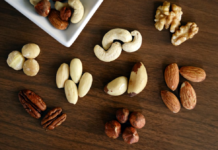The intricate relationship between the gut and the brain, often referred to as the gut-brain axis, has garnered significant attention in recent years. This bidirectional communication system links the emotional and cognitive centers of the brain with peripheral intestinal functions. Emerging research has revealed that what we eat can profoundly influence our mood, mental health, and overall well-being. Understanding the gut-brain connection and the impact of diet on mood is essential for anyone looking to improve their mental and physical health.
The Gut-Brain Axis: A Complex Communication Network
The gut-brain axis consists of multiple pathways that facilitate communication between the gut and the brain. These include:
- Neural Pathways: The vagus nerve, the longest cranial nerve in the body, plays a crucial role in transmitting signals between the gut and the brain. It is involved in controlling mood, immune response, digestion, and heart rate.
- Hormonal Pathways: Gut hormones, such as serotonin and ghrelin, influence brain function and mood. Interestingly, about 90% of serotonin, a neurotransmitter known for its role in regulating mood and anxiety, is produced in the gut.
- Immune Pathways: The gut-associated lymphoid tissue (GALT) is a key component of the immune system. It helps regulate inflammation, which is linked to mood disorders like depression and anxiety.
- Microbial Pathways: The gut microbiota, a diverse community of trillions of microorganisms, produces metabolites that affect brain function and behavior. These microbes play a critical role in the gut-brain axis.
The Role of Gut Microbiota
The gut microbiota significantly impacts mental health. These microorganisms produce various substances, including short-chain fatty acids (SCFAs), neurotransmitters, and vitamins, which influence brain function. An imbalance in gut microbiota, known as dysbiosis, has been linked to mental health disorders such as depression, anxiety, and even autism spectrum disorders.
Diet plays a pivotal role in shaping the gut microbiota. A diet high in fiber, fruits, vegetables, and fermented foods promotes a healthy and diverse microbial community. Conversely, a diet rich in processed foods, sugars, and unhealthy fats can lead to dysbiosis, negatively affecting mental health.
Dietary Factors Influencing Mood
Several dietary components have been shown to affect mood and mental health through their impact on the gut-brain axis:
- Fiber: A high-fiber diet promotes the growth of beneficial gut bacteria that produce SCFAs. These SCFAs have anti-inflammatory properties and can enhance mood and cognitive function.
- Fermented Foods: Foods like yogurt, kefir, sauerkraut, and kimchi are rich in probiotics, which are beneficial bacteria that support gut health. Probiotics can improve the gut microbial balance and have been associated with reduced symptoms of depression and anxiety.
- Omega-3 Fatty Acids: Found in fatty fish, flaxseeds, and walnuts, omega-3 fatty acids have anti-inflammatory properties and are crucial for brain health. They can improve mood and reduce symptoms of depression.
- Polyphenols: These are antioxidants found in foods like berries, tea, coffee, and dark chocolate. Polyphenols can modulate the gut microbiota and have been linked to improved cognitive function and reduced anxiety.
- Tryptophan: This amino acid, found in foods like turkey, eggs, and nuts, is a precursor to serotonin. Consuming tryptophan-rich foods can increase serotonin levels in the brain, promoting better mood and sleep.
- Magnesium: This mineral, found in leafy greens, nuts, seeds, and whole grains, plays a role in neurotransmitter function and has been associated with reduced symptoms of depression and anxiety.
Practical Dietary Strategies for Mental Health
To harness the benefits of the gut-brain connection, consider incorporating the following dietary strategies:
- Eat a Balanced Diet: Focus on a diet rich in whole foods, including plenty of fruits, vegetables, whole grains, lean proteins, and healthy fats. A balanced diet provides essential nutrients that support both gut and brain health.
- Include Probiotics and Prebiotics: Probiotics, found in fermented foods, introduce beneficial bacteria into your gut. Prebiotics, found in fiber-rich foods like garlic, onions, and bananas, feed these beneficial bacteria.
- Limit Processed Foods: Reduce your intake of processed and high-sugar foods, which can negatively impact the gut microbiota and contribute to inflammation and mood disorders.
- Stay Hydrated: Adequate hydration is essential for maintaining gut health and supporting the gut-brain communication pathways.
- Manage Stress: Chronic stress can disrupt the gut microbiota. Incorporate stress-reducing practices such as mindfulness, meditation, and regular physical activity.
Conclusion
The connection between the gut and the brain underscores the importance of diet in mental health. By understanding how different foods influence the gut-brain axis, you can make informed dietary choices that support both your physical and mental well-being. A diet rich in fiber, probiotics, omega-3 fatty acids, polyphenols, tryptophan, and magnesium can enhance mood, reduce anxiety and depression, and improve overall quality of life. Embracing a holistic approach to health that considers the gut-brain connection can lead to profound and lasting benefits for both mind and body.















